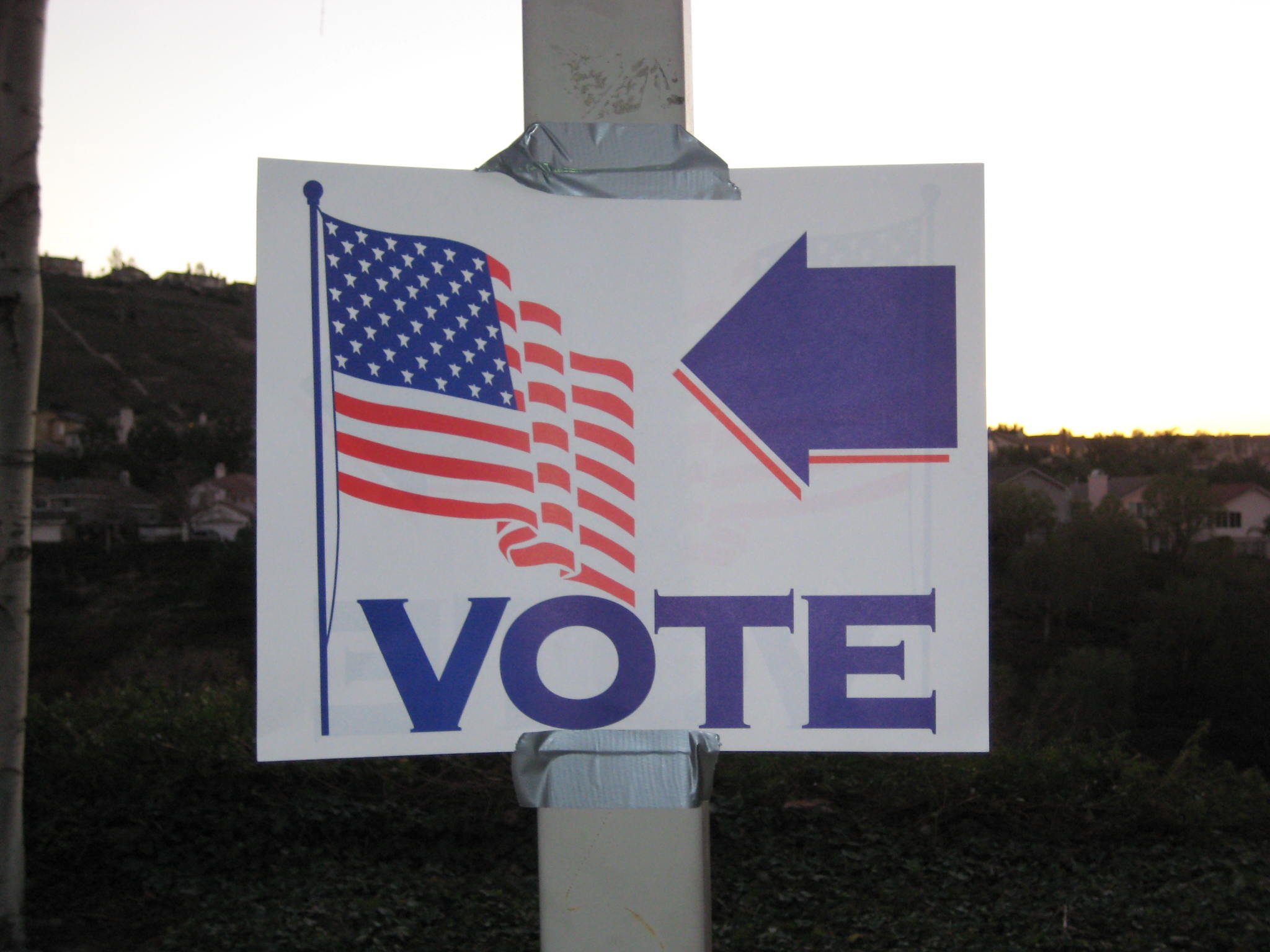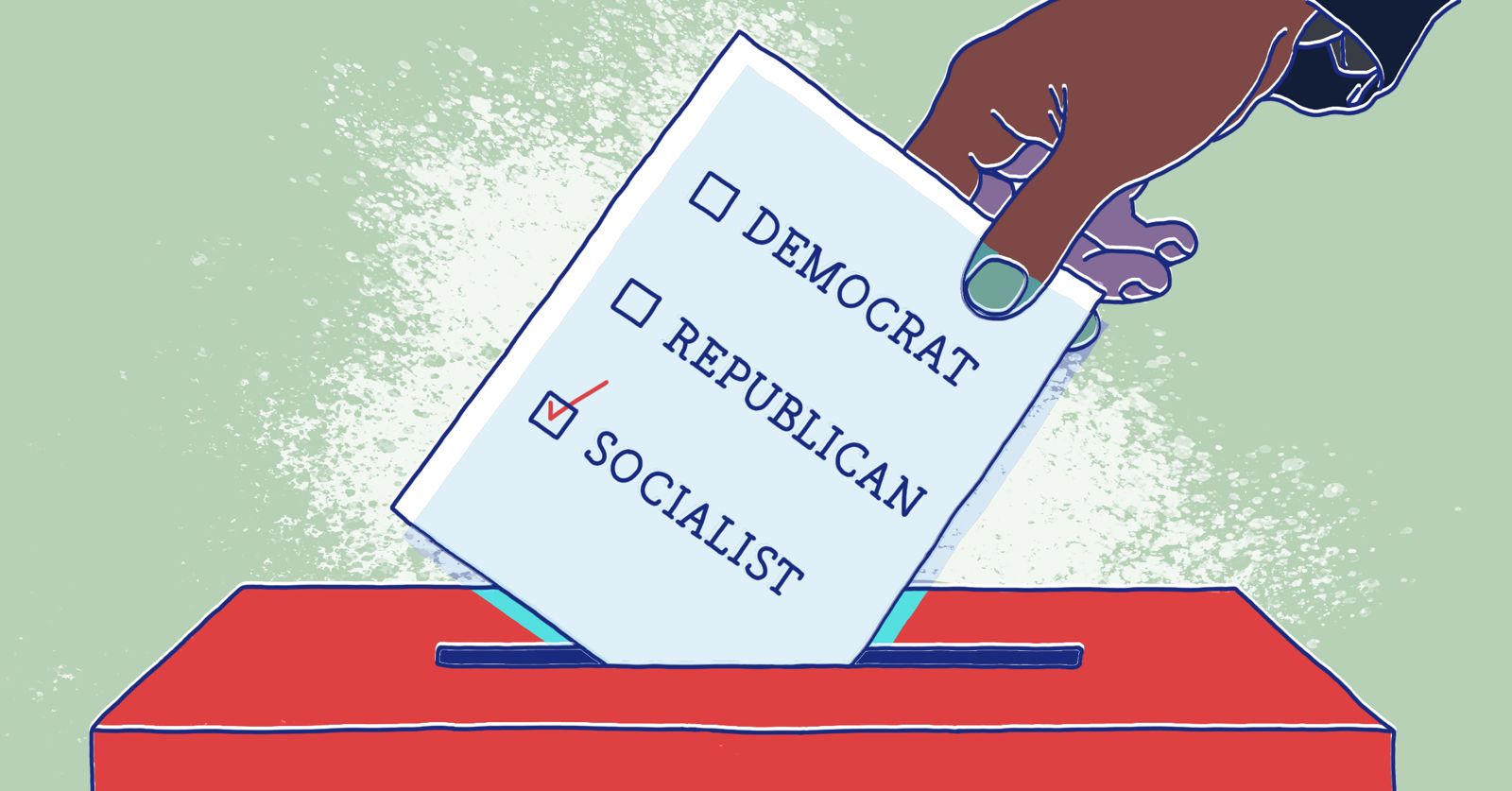If you like this piece, read more about where we stand and sign up to get our occasional email bulletins!
The notion of “constitutional crisis” has become a commonplace of liberal punditry under the Trump administration. To date, however, these discussions have focused largely on the controversy surrounding the Mueller investigation. Thankfully, the midterm elections appear to have refocused attention on the real constitutional crisis that can no longer be ignored: the fundamentally anti-democratic character of our country’s political institutions, and its exacerbation under conditions of extreme economic inequality.
Since election day, discussions that were once confined to the margins have made their way into the mainstream. The country’s newspaper of record published a call to grow and restructure the House of Representatives, and there is growing recognition of the Senate’s role in undermining popular rule. Republican attempts to keep people of color and other likely Democratic voters from the polls have been so blatant they’ve pushed the incoming House leadership to prioritize a symbolic electoral reform bill. Whatever we think of the Democratic Party, the fact that it routinely cannot translate popular vote success into a proportionate number of seats and offices is a scandal of representation.
The situation has been building toward crisis for some time now. Over the last 20 years, we’ve been through a string of events that threaten the democratic achievements of the 20th century. Two out of three presidents have been elected with less than a majority of the popular vote, the first because of the brazenly partisan intervention of the Supreme Court. The Court itself has continued to develop into an unaccountable super-legislature whose decisions are increasingly at odds with popular opinion. Rampant gerrymandering has given Republicans an unfair seat bonus at the federal and state levels, which they have reinforced by mounting attacks on the right to vote. Stealing the Georgia governor’s race from Stacey Abrams punctuates a decade’s worth of new restrictions on voting rights enacted by right-wing state governments.
As new developments interact with the counter-majoritarian architecture of the U.S. constitutional order, the trend toward minority rule is likely to intensify. As it does, basic questions concerning the nature of the political regime will increasingly become an object of public concern. It is therefore incumbent on socialists in general, and the Democratic Socialists of America in particular, to devise a program to defend and strengthen institutions of popular rule.
Engines of Minority Rule
America’s democracy problem begins with the Constitution itself. The founders were quite explicit about their intention to build a constitutional order that would frustrate the ability of an “interested and overbearing majority” to abolish debts, redistribute property, or undertake “any other improper or wicked object.” To that end, they created a system that would counteract the formation of popular majorities in the lower house of Congress through the division of powers: an aristocratic Senate, a strong executive, and the judiciary. And while the right of judicial review is not actually in the Constitution, courts have consistently used it to strike down laws infringing on the interests of slave owners, employers, and other holders of power and property.
These constraints on majority rule have not, however, always kept the masses off the political stage. The nineteenth century in particular was characterized by a high degree of popular participation in electoral politics, and the recurrent emergence of new parties dedicated to the improper and wicked objects the founders were so worried about. This was especially true of the post-Civil War period, when the laboring classes, black and white alike, formed a wide array of insurgent political movements: the Greenback Party, the Readjusters, the Socialist Labor Party, and above all, the People’s (Populist) Party.
Mass electoral mobilization threatened the Democrats and Republicans, who employed a dual strategy of absorption and repression to deal with the insurgents. The 1896 Democratic-Populist fusion presidential candidacy of William Jennings Bryan destroyed the Populists as an independent force. At the same time, elites in both major parties implemented a range of measures that effectively pushed the masses out of politics for decades: voter registration, poll taxes, literacy tests, secret ballots, unreasonably high ballot-access thresholds, and, in the case of the South, violence and terror. Mass political participation was revived through the labor and civil rights movements, but it has never recovered to the high levels of the late nineteenth century. In this light, the gutting of the Voting Rights Act and other assaults on the right to vote should be seen as an attempt to reinstitute the infamous system of 1896.
As Dylan Riley has observed, “the ancien-régime deformations of the U.S. political system have become ever more apparent as the underlying social structure has been transformed.” One aspect of this transformation is the redistribution of population away from rural areas and the nation’s interior to a relatively small number of metropolitan areas on the coasts. The upshot is that Democrats regularly amass huge wins in and around the cities, while a more evenly spread (and politically engineered) Republican vote nets the GOP a disproportionate number of seats. It also means that partisan competition has effectively disappeared from many areas, resulting in a large number of uncontested primary and general elections. This is a major problem for democracy not simply because competitive elections are valuable in themselves, but because, as E.E. Schattschneider incisively observed, “one-party politics tends strongly to vest political power in the hands of people who already have economic power.”
The explosion in economic inequality is, of course, the other major structural development of the last four decades. The winner-take-all economy allows the super-rich to invest a substantial portion of their wealth in politics to keep the game going and oppose even mild attempts at redistribution. Recent research by political scientists Benjamin Page and Martin Gilens reached a remarkable finding: average Americans have essentially zero independent influence over politics and policymaking at the national level. Working-class people get the policies we want when such policies coincide with the preferences of the rich — if the rich don’t want it, it’s not very likely to get through Congress. Page and Gilens call this regime a “democracy by coincidence,” a description that doesn’t offer much consolation to those of us who rightfully equate democracy with popular rule.
For a Democratic Republic
Marx counseled that socialists cannot simply take hold of the existing state machinery and wield it for our own purposes. That is especially true for socialists in this country, saddled as we are with an archaic constitutional order designed to thwart the exercise of popular rule. As the socialist movement continues to grow and elect candidates to public office, it will repeatedly run into the limitations of our anti-democratic political regime.
Our predecessors recognized this and demanded radical changes to the country’s political system. DSA should do the same and develop a national political platform that includes a call for the establishment of a truly democratic republic for the first time in our country’s history. Here are some general principles and proposals, by no means exhaustive, that might help to guide a movement for a new republic.
- Make voting count: Federal protection of the right to vote and the removal of all restrictions on the exercise of this right. Elections to be held on a holiday to maximize working-class participation. Proportional representation through mixed-member proportional representation. Public financing of electoral campaigns at all levels of government.
- Majority rule: Abolition of the Electoral College, election of presidents by national popular vote. Reduction of the Senate to a ceremonial and formal role, like the House of Lords in Britain.
- Against judicial government: End lifetime appointments for Supreme Court justices. Restore legislative supremacy and restrict judicial review through passage of jurisdiction stripping laws.
- End the imperial presidency: Restore Congress’s exclusive constitutional right to declare war. Radically reduce the military budget. Restrict the government’s ability to invoke the state secrets privilege. End executive branch mass surveillance and data collection programs.
- Make democracy social: Abolition of all restrictions on union and workplace organization. Development of direct democratic institutions at all levels to supplement and deepen representative democracy. Expand public employee and popular participation in design and implementation of public services.
Given the egregiously high barriers to calling a constitutional convention or amending the current constitution, a demand for a wholly new constitution would be utopian. Many (but not all) of these demands could be won within the current constitutional framework, and if implemented would mitigate a number of its most anti-democratic aspects. Taken together, they give a greater degree of shape and content to the call for “political revolution” that Bernie Sanders raised in his campaign for president.
Such a program takes direct aim at the kind of technocratic neoliberalism that continues to dominate the Democratic Party, and which has played an essential role in fueling the rise of reactionary forces here and around the world. The neoliberal turn hasn’t only affected labor market and welfare policy, but the institutional structure of states as well. Neoliberal governance is highly unpopular, so its implementation has necessitated a significant shift in power toward the institutions that are most insulated from democratic accountability: executive branch agencies, courts, arbitration tribunals, and central banks.
A program for democratic reconstruction seeks to reverse this trend and bring major issues of public concern back within the reach of popular politics, both directly and through the legislatures. By linking such a program with demands for economic redistribution and social security, democratic socialists can mount a comprehensive attack on the mutually reinforcing roots of today’s crisis: extreme inequality and the frustrations of post-democracy.
Far from being the “best possible political shell for capitalism,” the democratic republic has been the demand of working-class and socialist movements for well over a century. It is the means by which the people will learn how to exercise their right to rule, and the framework in which the transition from capitalist oligarchy to democratic socialism will eventually be achieved.




